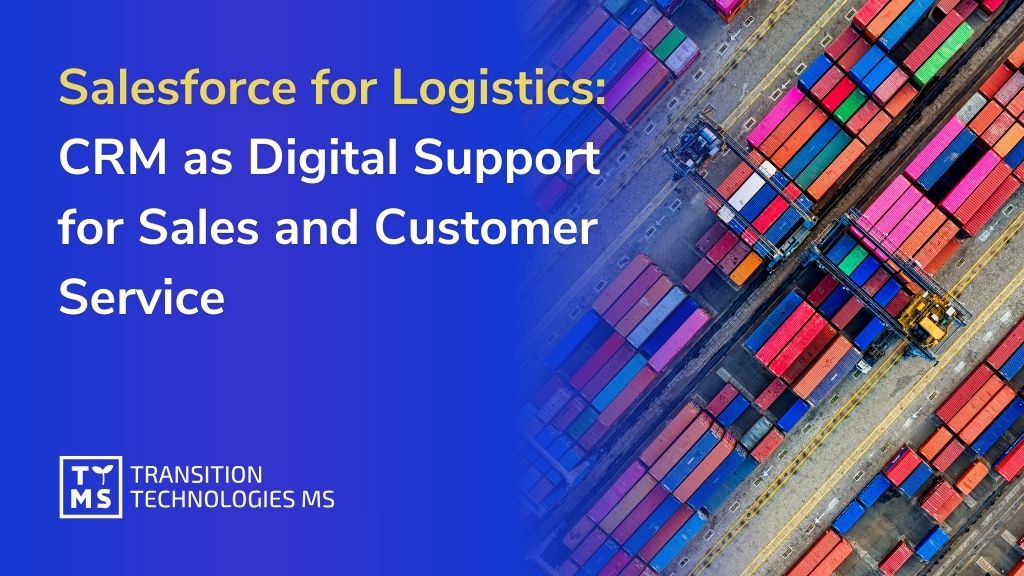In today’s fast-paced business environment, staying ahead of the competition requires constant innovation and the ability to bring new products to market quickly and efficiently. For large enterprises, the challenge is even greater due to the complexity and scale of operations. This is where Artificial Intelligence (AI) is making a significant impact. By integrating AI into product development processes, companies can enhance creativity, streamline workflows, and reduce time-to-market for new offerings. This article explores the transformative role of AI in product development and how it is accelerating the creation of innovative products.
The Role of AI in Product Development
AI is revolutionizing product development across various industries by providing tools and techniques that automate and optimize many aspects of the process. Here are some key ways AI is being utilized:
Idea Generation and Concept Development
AI algorithms can analyze market trends, consumer preferences, and existing product data to generate new ideas and concepts. These insights help companies identify potential opportunities and gaps in the market, fostering innovation.
Example: Netflix
Netflix uses AI to analyze viewer preferences and trends to create new content that resonates with its audience. By examining vast amounts of data on what types of shows and movies are popular, Netflix can make informed decisions about what new content to produce, ensuring high engagement and satisfaction among its users.
Design and Prototyping
AI-driven design tools enable rapid prototyping and iteration. Machine learning models can predict design outcomes and suggest improvements, allowing designers to refine products more efficiently. Generative design, a form of AI, explores countless design possibilities based on defined parameters, producing innovative solutions that might not be conceived through traditional methods.
Example: Autodesk and Airbus
Autodesk’s generative design software, powered by AI, was used by Airbus to redesign a partition in the A320 aircraft. The AI software generated multiple design options, optimizing for factors like weight reduction and material efficiency. The final design was 45% lighter than the original, contributing to fuel savings and reduced emissions.
Simulation and Testing
AI-powered simulation tools allow for virtual testing of products under various conditions, reducing the need for physical prototypes. This accelerates the testing phase, identifies potential issues early, and ensures that products meet quality and safety standards before production.
Example: Siemens and Digital Twins
Siemens utilizes AI-powered digital twins to create virtual replicas of their products. These digital twins simulate real-world performance, enabling Siemens to test and refine their designs in a virtual environment. This approach not only speeds up the development process but also enhances product reliability and reduces maintenance costs.
Supply Chain Optimization
AI can optimize supply chain operations by predicting demand, managing inventory levels, and selecting suppliers. This ensures that the product development cycle is not delayed due to supply chain inefficiencies, enabling a smoother and faster production process.
Example: Amazon
Amazon employs AI to manage its vast supply chain efficiently. AI algorithms predict product demand, optimize inventory levels, and streamline logistics, ensuring that products are delivered quickly and reliably to customers. This capability allows Amazon to maintain a competitive edge in the retail market.
Personalization and Customization
AI allows for the development of personalized products by analyzing consumer data and predicting individual preferences. This capability is particularly valuable in industries such as fashion, consumer electronics, and automotive, where customization can significantly enhance customer satisfaction and brand loyalty.
Example: Nike
Nike uses AI to offer personalized shoe recommendations and customization options. By analyzing customer data and preferences, Nike’s AI-powered platform can suggest shoe designs tailored to individual tastes, improving the customer experience and driving sales.

Benefits of AI in Product Development
Integrating AI into product development offers numerous benefits, including:
1. Increased efficiency
Automation of repetitive tasks and optimization of complex processes lead to significant time savings and reduced human error, allowing teams to focus on more strategic activities.
2. Cost reduction
By reducing the need for physical prototypes, minimizing waste, and optimizing resource allocation, AI helps lower the overall costs associated with product development.
3. Enhanced creativity
AI tools can inspire new ideas and provide innovative solutions that enhance the creative process. By analyzing vast amounts of data, AI can uncover patterns and insights that may not be immediately apparent to human teams.
4. Fast time-to-market
AI accelerates various stages of product development, from concept generation to production. This enables companies to launch new products faster and respond more quickly to market changes and consumer demands.
5. Improved product quality
AI-driven testing and simulation ensure that products meet high-quality standards. By identifying potential issues early, companies can avoid costly recalls and improve customer satisfaction.
Case Studies of AI in Product Development
How is BMW Using AI to Revolutionize Car Customization and Design?
BMW, a global leader in luxury automobiles, has deeply integrated AI into its design and manufacturing processes to revolutionize product development and customization. By employing advanced AI algorithms, BMW analyzes extensive datasets including customer feedback, market trends, and performance metrics to create vehicles that are both high-performing and aesthetically pleasing. The company uses AI-powered generative design software to explore a vast array of design possibilities based on parameters like weight, material strength, and aerodynamics. This software generates multiple design options, enabling designers to quickly iterate and refine the most promising solutions. Additionally, BMW’s AI systems analyze customer preferences and feedback from various channels such as social media, surveys, and direct interactions, allowing the company to offer highly personalized vehicle features. This data-driven approach ensures that BMW can meet individual customer needs while maintaining high standards of performance and safety. AI also plays a crucial role in predictive maintenance, where it analyzes real-time data from vehicle sensors to forecast potential issues before they arise, enhancing the reliability and lifespan of BMW vehicles.
How Does Procter & Gamble Utilize AI for Product Innovation and Formulation?
Procter & Gamble (P&G), a global consumer goods giant, utilizes AI to significantly enhance its product formulation and development processes. The company leverages AI to analyze vast amounts of data from various sources, including consumer feedback, market trends, and scientific research, to develop new products that meet evolving consumer needs. AI algorithms help P&G scientists understand complex chemical interactions and optimize formulations for effectiveness and safety. For instance, AI can predict the stability of a new cosmetic formula by simulating its behavior under different environmental conditions. This predictive capability allows P&G to accelerate the development process by reducing the need for extensive physical testing. Furthermore, AI-driven analytics enable P&G to personalize products based on consumer preferences and regional differences, ensuring that their offerings are both relevant and desirable. By integrating AI into their R&D processes, P&G not only speeds up product development but also enhances the quality and performance of their products, maintaining their competitive edge in the fast-moving consumer goods market.
What Role Does AI Play in Siemens’ Digital Twin Technology?
Siemens, a leader in the manufacturing industry, has adopted AI-powered digital twin technology to revolutionize its product development processes. Digital twins are virtual replicas of physical products that simulate their real-world performance and behavior. Siemens uses AI to create these digital twins, allowing engineers to test and optimize designs in a virtual environment before physical prototypes are built.
This technology significantly reduces the time and cost of product development, as potential issues can be identified and resolved early in the design phase. For example, Siemens uses digital twins to model the performance of complex systems, such as gas turbines and industrial machinery, under various operational conditions. AI analyzes data from these simulations to predict maintenance needs, optimize performance, and extend the lifespan of the products. Additionally, AI enhances the accuracy of simulations by integrating machine learning models that learn from historical data to improve prediction accuracy.
With AI-powered digital twin technology, Siemens can deliver more reliable and efficient products, ensuring higher satisfaction for industrial clients. Digital twins also enable Siemens to monitor products in real-time, allowing for continuous improvement and optimization. This advanced technology supports Siemens in maintaining a competitive edge in the market by accelerating the development of innovative products and minimizing the risks associated with implementing new solutions.
How Does Unilever Use AI for Talent Management and Product Customization?
Unilever, one of the world’s largest consumer goods companies, uses AI to enhance its talent management and product innovation processes. Unilever has integrated AI-powered tools like Pymetrics to match employees with roles that best fit their strengths and skills. Pymetrics uses neuroscience-based games and AI to evaluate cognitive and emotional traits, enabling Unilever to make data-driven hiring and placement decisions. This innovative approach not only improves employee satisfaction and retention but also enhances overall productivity. In product development, Unilever utilizes AI to analyze consumer preferences and market trends, helping to identify new product opportunities and optimize existing formulations. AI-driven analytics enable Unilever to understand regional preferences and customize products to meet local demands. For example, by analyzing social media trends and consumer feedback, Unilever can quickly adapt its product offerings to align with emerging trends in different markets. This agility allows Unilever to stay ahead of competitors and continuously innovate, ensuring their products remain relevant and appealing to consumers worldwide.
How is Adobe Enhancing Creative Workflows with AI?
Adobe has embraced AI through its Adobe Sensei platform, which powers intelligent features across all Adobe products to streamline creative workflows and enhance user experiences. Adobe Sensei uses machine learning to automate repetitive tasks, allowing designers and marketers to focus on more strategic and creative aspects of their work. For instance, Adobe Sensei can automatically tag images with relevant keywords, making it easier for users to organize and search their media libraries. In product development, AI algorithms analyze user interactions and feedback to suggest feature improvements and new product ideas. Adobe also uses AI to personalize user experiences by recommending tools and templates based on the user’s past behavior and preferences. This level of personalization helps Adobe maintain high user satisfaction and engagement. Furthermore, AI-driven predictive analytics enable Adobe to forecast market trends and user needs, guiding the development of new features and products. By integrating AI across its platform, Adobe enhances the efficiency and creativity of its users while continuously innovating its product offerings.
How is PepsiCo Leveraging AI for Supply Chain Optimization and Product Development?
How Does AI Enhance Quality Management in Product Development?
AI technologies are instrumental in enhancing quality management throughout the product development lifecycle. By leveraging AI, companies can achieve higher standards of quality, streamline their processes, and reduce errors. For instance, AI-driven predictive analytics can identify potential quality issues early in the design phase, allowing for timely adjustments that prevent costly recalls and ensure product reliability.y
Quality Management Services by TTMS
TTMS offers comprehensive quality management services that integrate AI tools to optimize quality control processes. Our services include:
- Automated Testing: Utilizing AI to conduct automated testing ensures consistent and thorough evaluation of product functionalities, leading to higher quality outcomes.
- Predictive Maintenance: AI-powered predictive maintenance tools help anticipate and address equipment failures before they occur, maintaining high standards of operational efficiency.
- Data-Driven Insights: AI algorithms analyze data from various stages of the product development process to provide actionable insights, improving decision-making and enhancing overall quality.
- Compliance Monitoring: AI systems can continuously monitor compliance with industry standards and regulations, ensuring that products meet all required specifications.
By incorporating these advanced AI capabilities, TTMS helps organizations maintain robust quality management systems that enhance product quality, increase customer satisfaction, and reduce time-to-market. For more details on our quality management services, visit our Quality Management Services page.
How does AI contribute to faster product development?
AI accelerates product development by automating repetitive tasks such as data entry, analysis, and reporting. It optimizes complex processes like design iterations and supply chain management through predictive analytics. AI provides real-time data analysis and feedback, allowing teams to make faster, more informed decisions. For instance, AI-driven generative design tools can quickly produce multiple design iterations based on specific parameters, significantly reducing the time spent on the conceptual phase and enabling quicker transitions to prototyping and production.
What types of data are crucial for effective AI implementation in product development?
Effective AI implementation requires high-quality, comprehensive data including market trends, consumer preferences, performance metrics, and historical data. For example, customer feedback and sales data help AI algorithms understand market demands and predict future trends. Performance data from previous products allow AI to optimize new designs for better efficiency and reliability. Additionally, data on supply chain logistics ensures that AI can effectively manage inventory levels and predict supply disruptions.
How can AI improve the creativity of product development teams?
AI enhances creativity by providing tools that generate new ideas and solutions. Generative design software allows teams to explore a wide range of design possibilities quickly, offering innovative solutions that might not be conceived through traditional methods. AI-driven analytics uncover patterns and insights from vast data sets, inspiring new product features and improvements. For example, AI can analyze social media trends to identify emerging consumer preferences, helping designers create products that are more likely to succeed in the market.
What are the primary challenges companies face when integrating AI into their product development processes?
Companies often face challenges such as ensuring the quality and availability of data, as AI systems require accurate and comprehensive data sets to function effectively. Integrating AI with existing workflows and systems can be complex and may require significant changes to infrastructure and processes. Additionally, developing and deploying AI solutions demands specialized skills, necessitating investment in training or hiring experts. Ethical and regulatory considerations, such as data privacy and bias in AI algorithms, also pose significant challenges.
How does AI support quality management in product development?
AI supports quality management by providing predictive analytics that identify potential issues early in the design phase, allowing for timely adjustments. Automated testing processes powered by AI ensure consistent and thorough evaluation of product functionalities, leading to higher quality outcomes. AI systems continuously monitor compliance with industry standards and regulations, ensuring that products meet all required specifications. For example, AI can simulate real-world conditions to test product durability and performance, reducing the risk of costly recalls and enhancing overall product reliability.
Can AI help in personalizing products for different customer segments?
Yes, AI can analyze consumer data to predict individual preferences and behaviors, enabling companies to offer personalized products and customization options. AI algorithms process vast amounts of customer data, such as purchase history, browsing behavior, and social media activity, to identify trends and preferences. This information helps companies create products tailored to specific customer segments, enhancing satisfaction and brand loyalty. For instance, AI-driven platforms like Nike’s customization service allow customers to design their own shoes based on personal tastes and preferences.
What role does AI play in supply chain optimization for product development?
AI plays a critical role in supply chain optimization by predicting demand, managing inventory levels, and selecting suppliers. AI algorithms analyze sales data, market trends, and supplier performance to forecast demand accurately, ensuring that inventory levels are optimized to meet customer needs without overstocking. AI can also identify potential supply chain disruptions and suggest alternative suppliers or routes, minimizing delays and costs. Companies like Amazon use AI to streamline logistics, ensuring products are delivered quickly and reliably to customers, maintaining a competitive edge.
How can companies ensure the ethical use of AI in product development?
Companies can ensure the ethical use of AI by implementing robust data privacy measures to protect customer information. They should also work to eliminate bias in AI algorithms by using diverse data sets and regularly auditing AI systems for fairness. Compliance with relevant regulations, such as GDPR for data protection, is crucial. Additionally, companies should establish ethical guidelines for AI use, ensuring transparency and accountability in their AI practices. Regular training for employees on ethical AI use can also help maintain high standards.
What industries benefit the most from AI in product development?
Industries such as automotive, consumer goods, fashion, electronics, and manufacturing benefit significantly from AI in product development. In the automotive industry, AI aids in design optimization and predictive maintenance. Consumer goods companies use AI for personalized product recommendations and efficient supply chain management. The fashion industry leverages AI for trend analysis and personalized shopping experiences. Electronics and manufacturing industries benefit from AI-driven automation, predictive maintenance, and quality control, enhancing efficiency and product innovation.
How can TTMS help companies implement AI-powered product development solutions?
TTMS offers comprehensive quality management services that integrate advanced AI tools to optimize product development processes. Our services include automated testing to ensure consistent and thorough product evaluation, predictive maintenance to anticipate and address equipment failures, and data-driven insights to improve decision-making. We also provide compliance monitoring to ensure products meet industry standards and regulations. By incorporating these AI capabilities, TTMS helps organizations enhance product quality, increase customer satisfaction, and reduce time-to-market. For more details, visit our Quality Management Services page.






